
Invertebrates Around Las Vegas, Wildlife Around Las Vegas
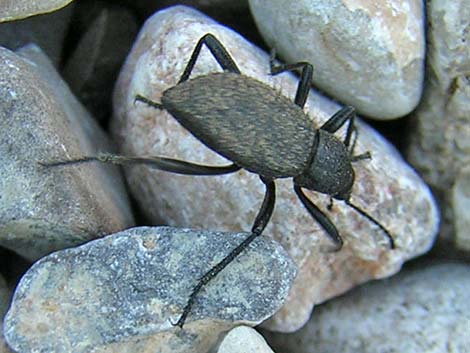 |
General: Beetles are the most diverse and hugely abundant group of animals on the planet, let alone in the desert around Las Vegas (about 25% of all animals are beetles). Beetles are recognized by having a very hard exoskeleton and hard forewings (elytra) that cover and protect the hindwings, which are used for flying. In flight, the elytra are raised and held to the sides while the hindwings produce lift, resulting in a characteristic silhouette. Beetles also have chewing mouthparts, segmented antennae, elytra that meet evenly along the midline (no overlap), and they undergo complete metamorphosis. |
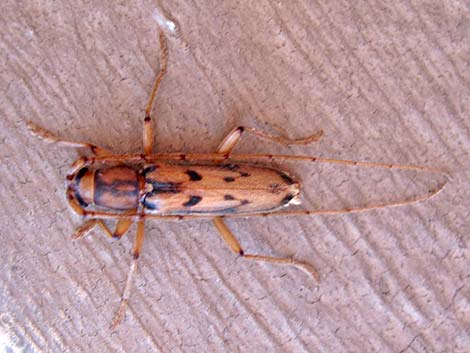 |
Family Cerambycidae: Longhorned Beetles
Achryson surinamum (longhorn beetle). Longhorn beetles are wood borers that reproduce under the bark of living trees, sometimes becoming pests and killing desirable trees. The "longhorn" refers to the elongate antennae, especially those of the male. |
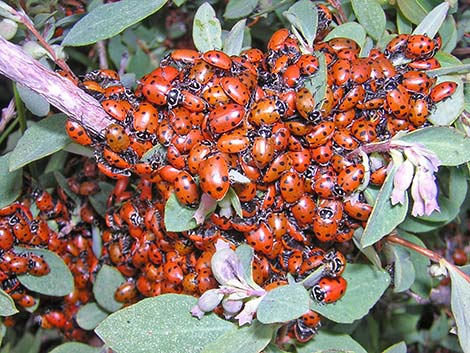 |
Family Coccinellidae: Ladybugs Convergent Lady Beetle (Hippodamia convergens) Unidentified Lady Beetles (Hippodamia spp.) |
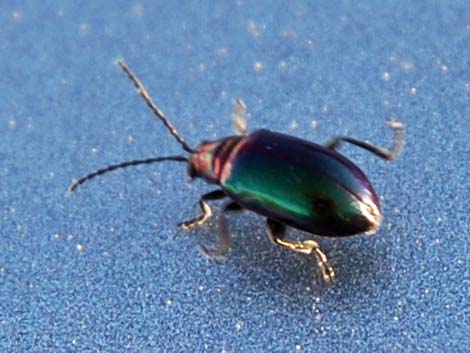 |
Family Chrysomelidae: Leaf Beetles |
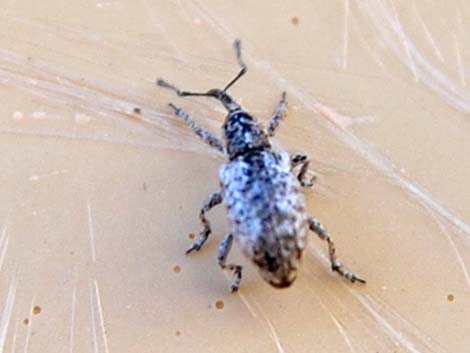 |
Family Curculionidae: True Weevils |
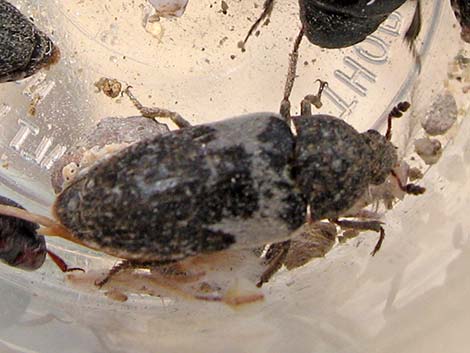 |
Skin Beetles (Dermestidae) [carrion beetles] Hide Beetles (Dermestes maculatus) Common Carrion Beetles (Dermestes marmoratus) |
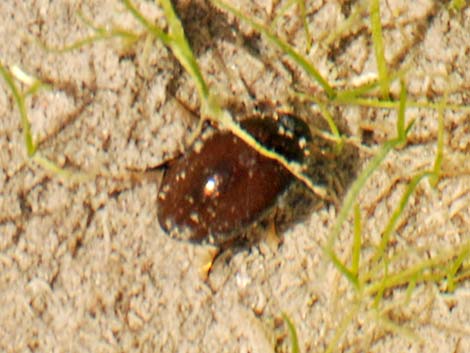 |
Families Dytiscidae and Hydrophilidae: Aquatic Beetles |
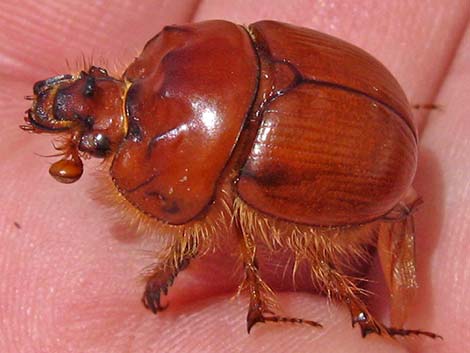 |
Family Geotrupidae: Earth-Boring Dung Beetles |
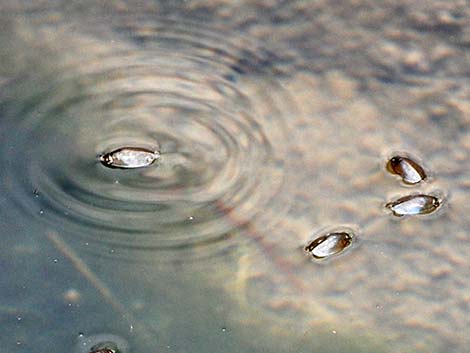 |
Family Gyrinidae: Whirligig Beetles |
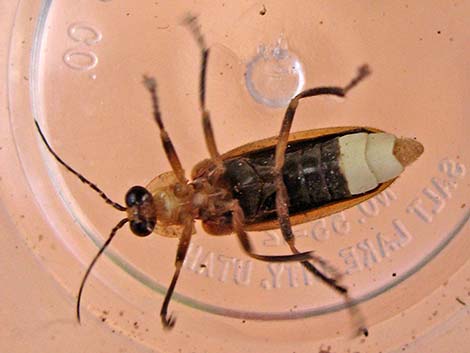 |
Family Lampyridae: Fireflies |
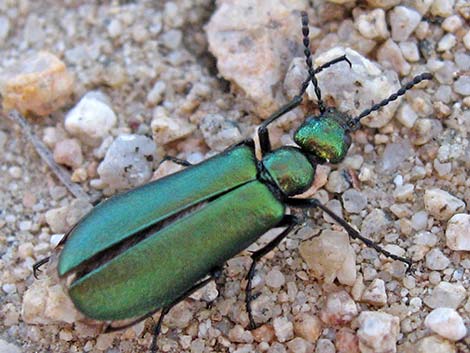 |
Family Meloidae: Blister Beetles |
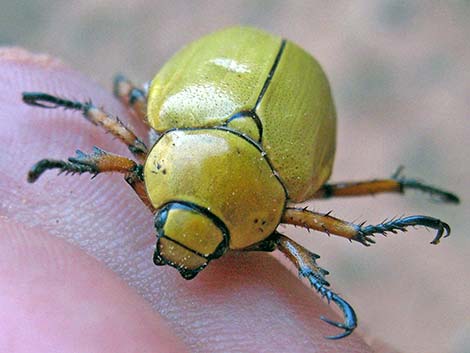 |
Family Scarabaeidae: Scarab Beetles |
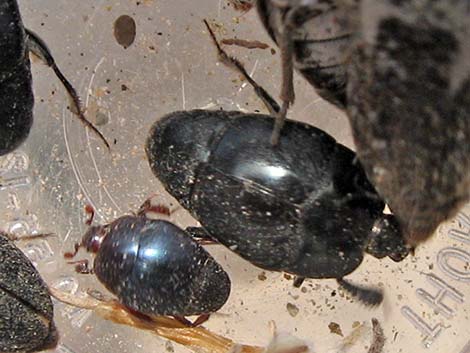 |
Burying and Carrion Beetles (Silphidae) |
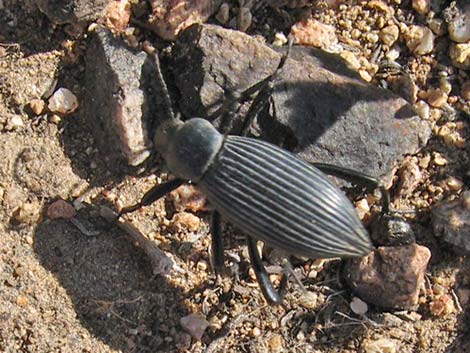 |
Family Tenebrionidae: Darkling Beetles, Circus Beetles, Stinkbugs |
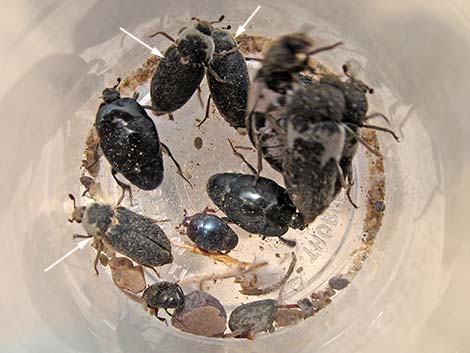 |
Mixed Carrion Beetles |
Note: All distances, elevations, and other facts are approximate.
![]() ; Last updated 240512
; Last updated 240512
| Inverts Around Las Vegas | Wildlife Around Las Vegas | Glossary | Copyright, Conditions, Disclaimer | Home |